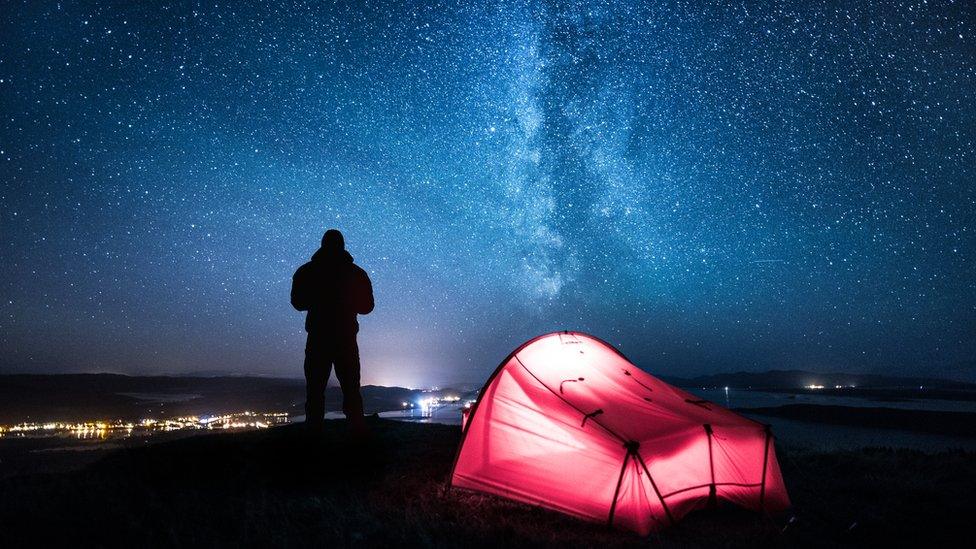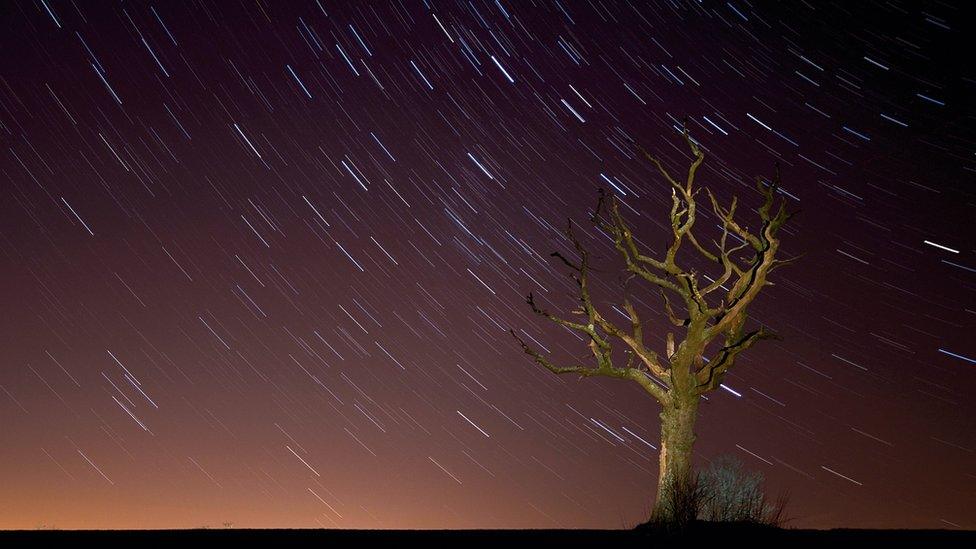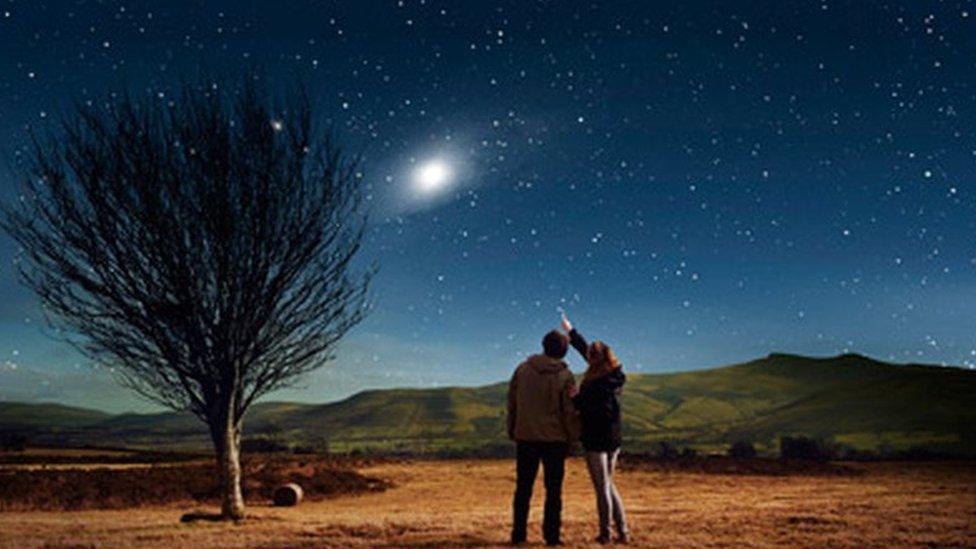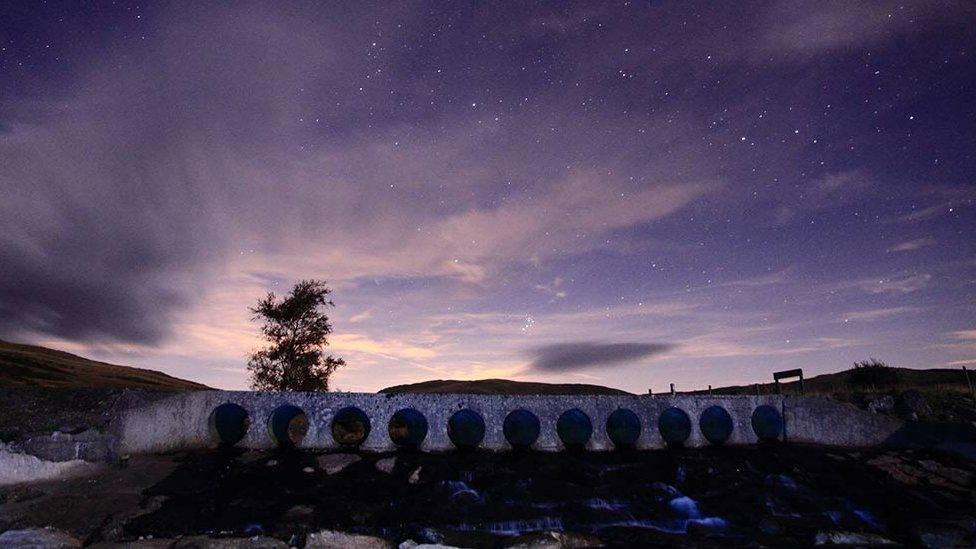'Dark Skies' plan for Clwydian Range a step closer
- Published

Plans to grant the Clwydian Range in north east Wales "Dark Sky" status have moved a step closer.
Members of the Clwydian Range and Dee Valley Area of Outstanding Natural Beauty Committee voted to submit an application for the status on Friday.
The International Dark Sky Association makes the award to areas where the night sky is "outstanding" and light pollution is minimised.
There are 11 dark sky reserves across the world.
If granted, it would follow the Brecon Beacons and Snowdonia in having the designation.
The move is a result of two years of research into the criteria, with consultations held with local businesses and communities.
A report to the committee from David Shiel, of Denbighshire's countryside service, said although there are a few areas of concern, like Llangollen, in general the sky quality "would meet the standards required".
In large parts of the area, including tourist hotspots Horseshoe Pass and Moel Famau, the night skies are already of excellent quality, he added.

Apart from the tourism benefits, it is hoped the status would bring benefits in public health, biodiversity and energy efficiency.
The report said that "sleep is often disturbed by a lack of proper darkness at night" and that this brings "adverse impacts on health".
Light "spillage" from towns, as well as Deeside, Chester and Merseyside, can have "a significant effect upon tranquillity", the report said.
The range has been working with Denbighshire, Flintshire and Wrexham councils, which have different lighting policies to resolve the issue.
The lighting along the A5, A55 and A494 crossing the range is also controlled by the Welsh Government.
The cost of making an application and drawing up a lighting management plan is estimated at £20,000, half of which has been provided by the Welsh Government.
- Published22 March 2017

- Published24 April 2017

- Published4 December 2015
